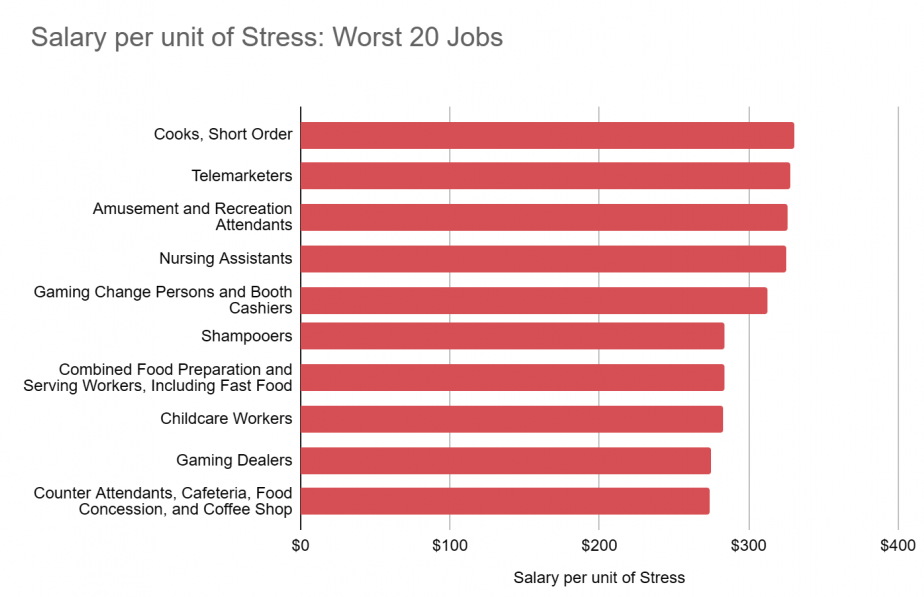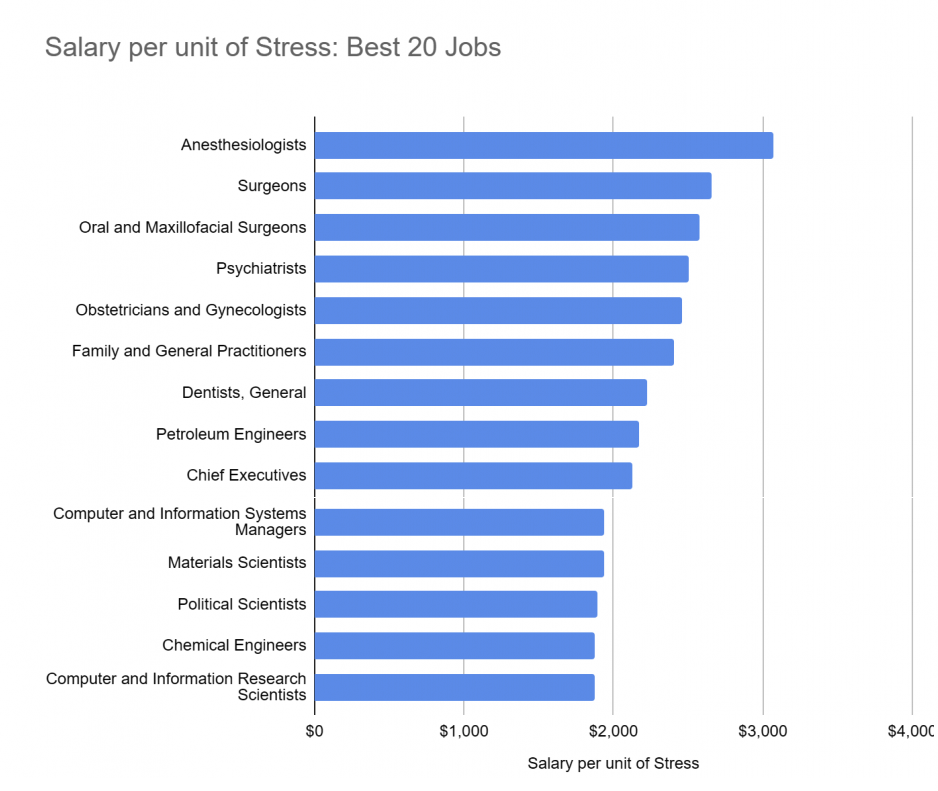The Pay-To-Stress Ratio
On Tuesdays I write about the top voted question on Ask Berkun (see the archive). This week’s question is from Kate N. [via email]: How can I evaluate the true value of a job offer?
I have two job offers: one pays less, but the quality of life (flexible hours, healthy culture) is much better. The other pays far more, and if I can do it for a few years I can be in a much better financial situation. What should I do?
A friend of mine has a job that, on paper, seems great: he’s a high paid business consultant, working for a Fortune 500 company with excellent benefits. But he also has high blood pressure, is overweight, has little quality time with his family from his 12 hour days and exhausted weekends. Is he paid well? Most of us would say yes, but I’d say his pay to stress ratio is poor.
Pay to Stress is the ratio of the financial compensation compared against the true costs of life quality the job demands. The challenge in computing the ratio is the compensation packages an organization offers are well defined, lets say $100k salary, 20 vacation days and a gym membership. But to compute the stress, and negative impact, on our lives that job will demand requires homework and introspection most people don’t bother to do. The pay is well defined, but what is the true COST on a life for taking this job? It’s up to you to figure that out. For example: perhaps the gym membership is useless because you work too many hours to possibly use it.
In other words: If a job pays you $100k annually, but when you get home each night you are too tired, emotionally and physically, to spend quality time with your friends and family, are you really being paid well?
Pay, in professional circles, is often about status. It’s a symbol of the idea of success. It’s also easy to compare one job to another, or one person to another, in terms of salary, so so we use it as the singular measure of achievement. But this is foolish. The real yardstick of life is time. You can possibly earn more money, but you can not earn more time. What good is a yacht or a beautiful home if you rarely have the time to truly enjoy them? Many financially wealthy people are time poor, using their wealth to collect trophies they think signify a good life while never actually experiencing one.
Of course stress is subjective. Some people find challenging projects stressful while others enjoy them. In this context what I mean by stress is anything that you need to recover from before you can enjoy the rest of your life. The post work happy hour you need to have at the bar to decompress before heading home indicates a kind of stress took place during the day that you know you need to recover from. Another common symptom of stress are Saturday mornings (or afternoons) you spend sleeping late (trying to) catch up on the missed sleep during the week. Both imply your Pay to Stress ratio is high.
This summary from dumbwealth.com shows to the worst and best occupations based on pay to stress:


The wise choice is a job that rewards you well both financially but also in freedoms that help you use your time away from work for a high quality life. Those freedoms may include vacation time (which is terribly limited in the U.S. compared to other countries), the ability to work from home, flexible hours (so you can avoid the stupidity of commuting in rush hour) or a culture that measures/rewards your output instead of just your hours. The tech industry has long been a pioneer of many of these freedoms, but they are still rare in most of the working world.
In short, think through the total cost on your life of taking a job when you consider the offer. The potential employer can’t do that for you and likely will use that to their own advantage. If you knowingly take a high stress job that’s fine, especially if you see it as a short term choice to enable you to have better options in the future.
[updated with charts from dumbwealth.com, 3-10-2021]


As for stress, all I can say is: Live beneath your means. (Or LBMM) As you know, this reduces stress in obvious ways, plus you always know you have the freedom to downsize your job and carry on. I just love feeling that margin of safety.
I’ve learned one thing: if a job is a little to well paid, ask yourself why. The answer might be pointing to the things mentioned above.
Great point – it’s just all too easy to think that number (salary) is more important than all the other considerations in part because those other factors are harder to measure.